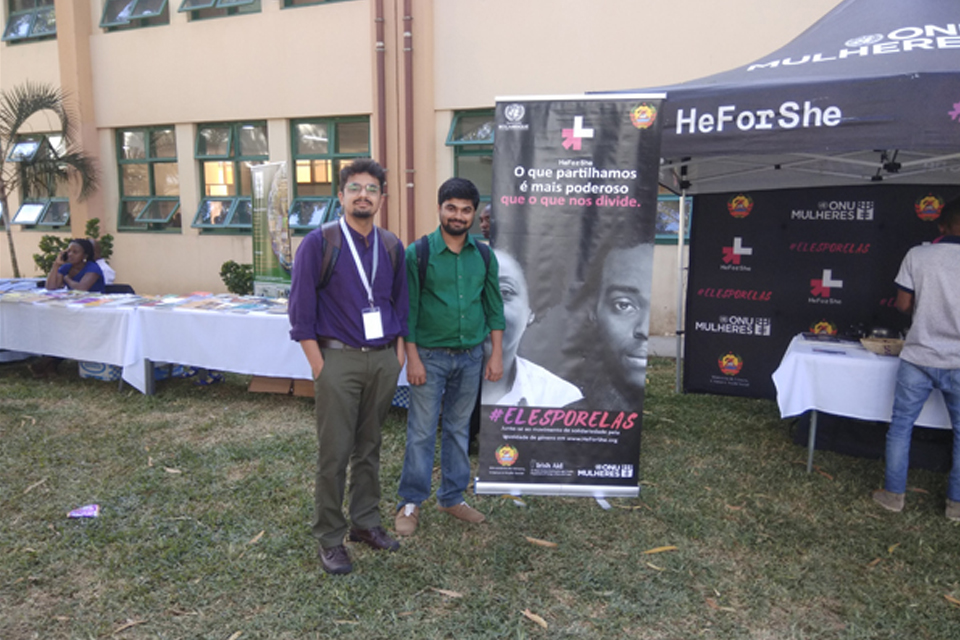Azad at MenEngage Africa Symposium in Mozambique

Azad Foundation participated in the 2nd MenEngage Africa Symposium held at Eduardo Mondlane University, Maputo, Mozambique from April 23 to 27, 2018. It was organized by Rede HOPEM and Eduardo Mondlane University Faculty of Arts and Social Sciences on behalf of Men Engage. The symposium aimed at bringing “together hundreds of participants, among whom academics, activists, government and UN representatives to share their perspectives and experiences in the search of ways to reach gender equality and transformation of social norms towards social justice in the continent.”
The overarching objective of the symposium was to create a networking platform to share one’s best practices and resources on working with men on issues related to gender equality. The gathering also intended to develop a unified regional vision on the gender transformative approaches to engaging men and boys in transforming masculinities and supporting women’s empowerment, within the scope of sustainable development goals.
Azad Foundation was represented by the Men for Gender Justice team, Suraj Pawar and Sagar Sachdeva, who shared about our work along with various challenges and learnings of working with men in urban areas like Delhi and Jaipur (India). The team highlighted how the notion of masculinity is embedded deep into our societyand the personal relationships that men share. Different sessions with men and boys on Gender, Patriarchy, Masculinities and Sexuality in different phases combined along with mobilization by the same men to campaign to end violence against women in their own communities has helped them become change agents, creating alternative images of masculinities. The team also shared that it is very important to develop relationship with men to hold them in the program and ensure their full participation. From reflecting on why these men agree to join our programme, to recording their transforming notions of gender and masculinities, the team uses tools like surveys and case studies to evaluate the impact our activities.
Both the team members shared that ‘It was enriching to get familiar with so many approaches and models of engaging men and boys based on the kind of challenges prevalent in any situation.’
At the end of the Symposium, a resolution was drafted by the Symposium Committee based on the conversations that took place over four days that would be a reference point for future strategies and partnerships in working with men and boys in the Africa Region.







